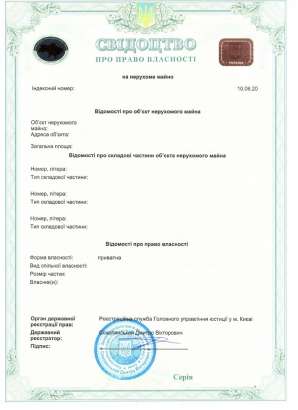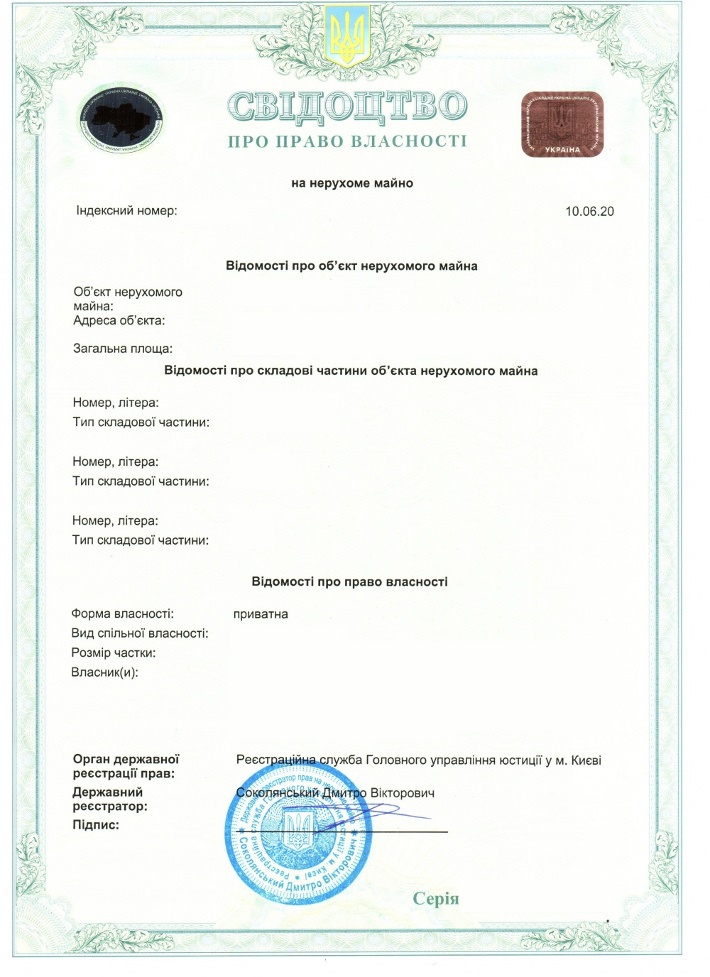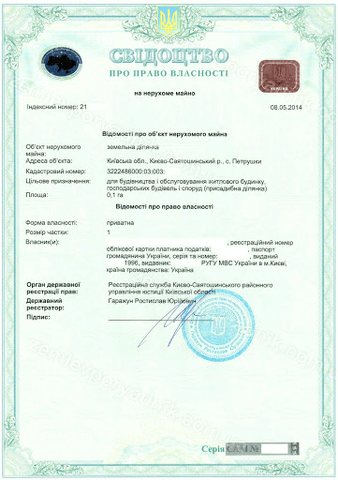How to check the contract of investment in a new building?
Cost of services:
Reviews of our Clients
... our work on joint projects assured us of your high level of professionalism
For most of Ukraine's history of independence, there was no comprehensive legislative framework to regulate the trade of primary real estate. While mechanisms were established at the legislative level to address this, the matter was not thoroughly regulated by norms. As a result, various investment attraction schemes emerged for new construction.
Not all of these schemes were operated by conscientious developers. In the overwhelming majority of cases, investors were not protected from potential risks when investing in primary real estate.
The presence of diverse investment attraction schemes, varying contracts, low legal awareness among the public, a reluctance to seek legal help combined with economic difficulties, and military events. All of these were outcomes of either unfinished construction or project delays, misappropriation of investors' funds without any intention to build, and corrupt schemes beginning with land allocation for construction and extending to obtaining regulatory permits.
One of the problems lies in the prevalence of numerous mixed contracts that regulate investment mechanisms and the acquisition of real estate in the primary market.
This leads to a significant issue of investors often misunderstanding the contract's content: what should be included, what expectations the investor has, and what the developer truly intended.
Among the major problems were:
- Prolonged construction timelines.
- Alterations to the project and technical specifications of the property.
- Instances where the property was sold multiple times to different investors.
Moreover, the contracts with investors weren't always established by the construction contractor. In certain cases, it could have been an entirely separate entity unrelated to construction, which in the event of a dispute, bore no responsibility.
The central question remains: Can we place our trust in developers today? As always, the principle applies: trust but verify. We'll provide guidance on how to assess the developer, the contract, and the investment scheme presented for the new development.
Avoiding Purchasing a 20th-Floor Apartment in a 15-Floor Project
The presence of opaque and convoluted schemes allowed for the exploitation of investor rights, enabling the construction of vastly different properties from those outlined in the project. Deviating from the project, constructing individual residential buildings, and registering up to 100 apartments within them became possible. Additionally, it was not uncommon to construct on a land plot that inherently could not be developed.
We once had an interesting case with an investor and illegal construction. To summarize, an investor sought a legal audit of their investment property. Interestingly, apart from the sale and purchase agreement for the future real estate, the developer had provided nothing. By "nothing," we mean that upon scrutinizing the initial and regulatory documents, we discovered that the developer had sold the investor an apartment on the 20th floor.
As we analyzed the project documentation and permits, it turned out that it was a conversion of a kindergarten, not a multi-story residential building. The sales department reassured the investor that all documents would be updated, and there was no need for concern, as everything would be completed, the building would be finished, and the investor would obtain property rights.
However, that didn't happen. The prosecutor's office initiated a criminal case against the developer, leaving those who had purchased apartments in the building with nothing. After conducting the audit, we advised our investor client against investing in this property.
You may also like: Purchasing a Second-Hand Apartment in Ukraine: Inspection and Preparation for the Transaction
The New Regulations for Selling New Developments
The revised procedures for selling and investing in new construction projects came into effect on October 10, 2022. Essentially, all ongoing construction endeavors that were granted construction permits prior to this date continue to adhere to the former operational norms.
The significant changes brought about by this legislation encompass:
- Categorizing construction projects into separate, indivisible, and future real estate entities.
- Mandating the registration of specific property rights in favor of the construction contractor (developer).
- Restricting property sales solely to the execution of notarized sale and purchase agreements (during the initial sale phase).
- Introducing and allocating a warranty share.
- Directly forbidding the formation of preliminary agreements without notarization, and any transactions based on such preliminary agreements are prohibited.
- Implementing additional safeguards against unethical developers.
Taxation of Transactions Involving Future Real Estate Properties
Income from sales is subject to an 18% tax rate for the following:
- Properties under incomplete construction.
- Future real estate properties (referred to as Monetary Units of the Future).
- Divisible properties under incomplete construction.
In the case where such properties and property rights are acquired through inheritance, they are taxed at a rate of 5%.
Furthermore, income derived from sales during the reporting (tax) year, particularly for indivisible properties under incomplete construction or future real estate properties, may be reduced by documented expenses related to the acquisition of these properties.
You may also like: How to Conclude a Real Estate Swap Agreement in Ukraine?
What will the due diligence process involve when investing in new construction projects?
During the legal audit of an investment property, our primary focus is on the following key aspects:
- Defining the legal framework for raising funds and analyzing the regulatory landscape governing investments, and contractual relationships based on the timing of obtaining regulatory permits.
- Distinguishing between two periods – before and after October 10, 2022 – and conducting an analysis of land rights, regulatory and other construction-related documentation, investment strategies, and potential risks.
- Scrutinizing the credentials of the contractor, developer, subcontractors, directors, and beneficiaries to assess their credibility, reliability, or any associated construction risks.
Among the most common investment strategies are:
- Construction financing funds.
- Real estate transaction funds.
- Joint investment institutions.
- Bonds.
- Property rights sale and purchase agreements, preliminary agreements.
- Participation in cooperatives.
When reviewing contracts, our focus is on the following aspects:
- The investment property and its technical specifications.
- The payment schedule outlined in the contract.
- Procedures for additional payments or compensation due to changes in the property's area.
- Deadlines for fulfilling obligations.
- Protocols for transferring property rights or reselling the property.
- Procedures and conditions for terminating the contract.
Currently, the legislation clearly defines the following investment and construction financing schemes:
- Through the execution of sale and purchase agreements for indivisible incomplete construction properties/future real estate properties (shares of indivisible incomplete construction properties with the construction contractor/developer).
- Through participation agreements in construction financing funds managed by the construction financing management fund.
- Through the issuance of targeted corporate bonds, which are redeemed by transferring the property (or a portion thereof) of residential construction.
For construction projects where the right to perform construction work is acquired after October 10, 2022, the mechanism for transferring properties to investors has undergone significant changes. Without registering a special property right for the future real estate property with the construction contractor/developer, transferring such property is not feasible (initial sale).
You may also like: Pre-Purchase Inspection of Apartments in the Primary Real Estate Market in Ukraine
To register a special property right for a separate/undivided incomplete construction property or a future real estate property, the construction contractor must possess the following:
- Ownership rights or land use rights for the land plot on which the corresponding property is being built (in cases where the law permits construction without obtaining ownership rights or land use rights for the land plot).
- Existing urban planning conditions and restrictions or a construction passport.
- The right to carry out construction work.
- No evidence of construction work being suspended.
- The property must not have been accepted into operation.
If you're seeking to invest in construction with minimal risk, feel free to reach out to us! We offer a comprehensive range of legal services related to real estate. Our team is committed to ensuring your financial and legal security.
You may also like:
Due diligence for commercial real estate before purchasing in Ukraine.
Construction during times of war: How to operate under declaration?
Our clients







